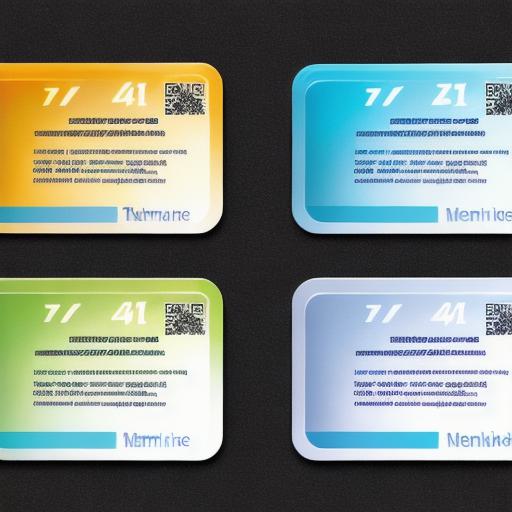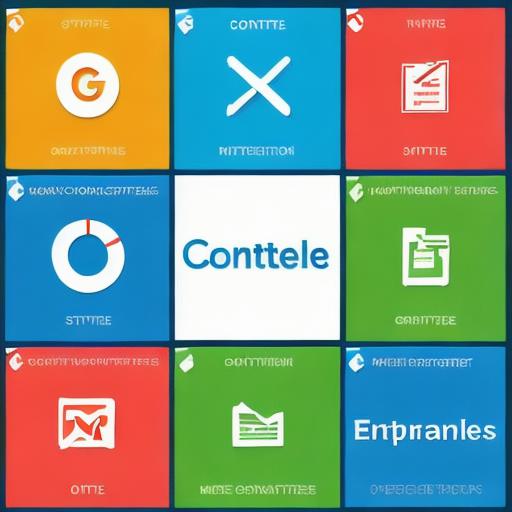Direct marketing is a highly effective way for businesses to reach their target audience and generate leads. With so many different direct marketing tools available, it can be overwhelming to choose the right ones for your business. In this article, we will explore the most effective direct marketing tools for businesses and provide practical tips on how to use them to drive more sales and conversions.
Table of Contents:
I. Introduction
A. Explanation of Direct Marketing
B. Importance of Direct Marketing
C.
Overview of Direct Marketing Tools
II. Email Marketing
A. Definition and Benefits of Email Marketing
B. Tips for Effective Email Marketing
- Building an Engaging Email List
- Crafting Compelling Subject Lines
- Personalizing Emails
- Incorporating Calls-to-Action (CTAs)
- Monitoring and Analyzing Email Campaign Performance
C. Real-Life Examples of Successful Email Marketing Campaigns
- Dollar Shave Club’s "Our Blades Are F%cking Great" Campaign
- HubSpot’s "How to Make a Successful Sales Pitch in 30 Seconds or Less" Campaign
III. Social Media Marketing
A. Definition and Benefits of Social Media Marketing
B. Tips for Effective Social Media Marketing
- Identifying the Right Social Media Platforms for Your Business
- Creating Engaging Content
- Building a Strong Social Media Presence
- Incorporating CTAs in Social Media Posts
- Monitoring and Analyzing Social Media Performance
C. Real-Life Examples of Successful Social Media Marketing Campaigns
- Nike’s "Dream Crazier" Campaign
- Old Spice’s "Man Your Man Could Smell Like" Campaign
IV. Content Marketing
A. Definition and Benefits of Content Marketing
B. Tips for Effective Content Marketing
- Identifying Your Target Audience
- Creating Valuable, Relevant, and Consistent Content
- Promoting Your Content Across Multiple Channels
- Measuring the Success of Your Content Marketing Strategy
C. Real-Life Examples of Successful Content Marketing Campaigns
- HubSpot’s Inbound Marketing Blog
- Moz’s Whitepapers and Webinars
V. SMS Marketing
A. Definition and Benefits of SMS Marketing
B. Tips for Effective SMS Marketing
- Building an Opt-In List
- Crafting Compelling SMS Messages
- Personalizing SMS Messages
- Incorporating CTAs in SMS Messages
- Monitoring and Analyzing SMS Marketing Performance
C. Real-Life Examples of Successful SMS Marketing Campaigns
- Sephora’s "Beauty Insider" Program
- Domino’s Pizza’s "Pizza Alerts" Service
VI.
Conclusion
A. Recap of Direct Marketing Tools and Their Benefits
B. Encouragement to Experiment with Different Direct Marketing Tools
C. Final Thoughts on the Importance of Direct Marketing for Businesses
Direct Marketing: What is it and why is it important?
Direct marketing refers to any form of advertising that targets a specific audience directly, using channels such as email, social media, content, SMS, and more. The goal of direct marketing is to reach potential customers with personalized messages that are relevant to their interests and needs. Direct marketing has become increasingly popular in recent years, thanks to the rise of digital technologies and the ability to collect and analyze large amounts of data on consumer behavior.
The importance of direct marketing cannot be overstated. It allows businesses to reach potential customers with targeted messaging, which can result in higher conversion rates and a better return on investment (ROI) compared to traditional advertising methods. Direct marketing also allows businesses to build stronger relationships with their customers by providing them with valuable information and engaging content that is tailored to their interests.
Overview of Direct Marketing Tools
There are many different direct marketing tools available, each with its own set of benefits and drawbacks. In this article, we will explore the most effective direct marketing tools for businesses and provide practical tips on how to use them to drive more sales and conversions.
Email Marketing: The Power of Personalized Messaging
Email marketing is a highly effective way for businesses to reach potential customers directly with personalized messages. With email, you can target specific segments of your audience based on their interests, behaviors, and demographics, allowing you to deliver relevant content that is most likely to resonate with them.
Here are some tips for effective email marketing:
- Building an Engaging Email List: The first step in any successful email marketing campaign is to build a list of engaged subscribers who are interested in receiving your emails. You can do this by offering valuable incentives, such as exclusive discounts or free content, in exchange for their email address.
- Crafting Compelling Subject Lines: The subject line is the first thing that recipients see when they receive your email. It’s important to create a subject line that is attention-grabbing and entices them to open your email.
- Personalizing Emails: Personalization goes beyond simply including the recipient’s name in the email. You can also use data and insights from your CRM or marketing automation tool to personalize the content of your emails, such as offering product recommendations based on their past purchases.
- Incorporating CTAs: A clear call-to-action (CTA) is essential in every email. It should be prominently displayed and encourage the recipient to take a specific action, such as clicking through to your website or making a purchase.
- Monitoring and Analyzing Email Campaign Performance: Use analytics tools to track the performance of your email campaigns, including open rates, click-through rates, and conversion rates. This data can help you optimize your campaigns for better results.
Real-Life Examples of Successful Email Marketing Campaigns
- Dollar Shave Club’s "Our Blades Are F%cking Great" Campaign: Dollar Shave Club’s viral video campaign was a perfect example of how to use humor and personality in email marketing. The company sent personalized emails to its subscribers with the subject line "You Should Talk to Someone About Our Blades," which immediately caught their attention and made them want to learn more.
- HubSpot’s "How to Make a Successful Sales Pitch in 30 Seconds or Less" Campaign: HubSpot used personalized emails to promote its sales pitch ebook, offering tips and tricks for creating effective sales pitches. The subject line was "You Want to Close More Deals? Try This," which immediately grabbed the attention of recipients and encouraged them to click through and read the ebook.
Social Media Marketing: Building a Strong Presence Online

Social media is another powerful direct marketing tool that allows businesses to reach potential customers directly with targeted messaging. By using social media, you can build a strong presence online, engage with your audience, and drive traffic to your website.
Here are some tips for effective social media marketing:
- Identifying the Right Social Media Platforms for Your Business: Different social media platforms have different audiences, so it’s important to identify which platforms are most relevant for your business. For example, if you sell products to millennials, Instagram might be the best platform for you, while LinkedIn might be better suited for B2B businesses.
- Creating Engaging Content: Social media is all about engagement, so it’s important to create content that is interesting and relevant to your audience. This can include images, videos, blog posts, infographics, and more.
- Building Relationships with Your Audience: Social media is a two-way conversation, so it’s important to build relationships with your audience by responding to comments and messages in a timely manner.
- Running Social Media Advertising Campaigns: Social media platforms offer advertising opportunities that allow you to target specific segments of your audience based on their interests, behaviors, and demographics. This can be an effective way to drive more traffic to your website and generate leads.
Real-Life Examples of Successful Social Media Marketing Campaigns
- Domino’s Pizza’s "Pizza Alerts" Service: Domino’s Pizza used social media to launch its "Pizza Alerts" service, which allows customers to receive notifications when their favorite pizza is available at their local store. The company created a dedicated hashtag for the campaign and encouraged customers to share their excitement on social media.
- Starbucks’ ShareACuppa Campaign: Starbucks launched its "ShareACuppa" campaign, which encourages customers to share a cup of coffee with a friend or family member. The campaign went viral on social media, with millions of people sharing photos and stories about their coffee-sharing experiences.
Content Marketing: Providing Value to Your Audience
Content marketing is another effective direct marketing tool that allows businesses to provide value to their audience in exchange for their attention. By creating valuable content such as blog posts, ebooks, whitepapers, and more, you can establish your business as an authority in your industry and build trust with your audience.
Here are some tips for effective content marketing:
- Identifying Your Audience’s Pain Points: To create valuable content, it’s important to understand the pain points and challenges that your audience is facing. By addressing these pain points in your content, you can position yourself as a solution provider and build trust with your audience.
- Creating a Content Strategy: A content strategy outlines the type of content you will create, when you will publish it, and how you will promote it. This can help you stay on track and ensure that you are creating content that is relevant and valuable to your audience.
- Measuring and Optimizing Your Content: Use analytics tools to measure the performance of your content, including page views, engagement rates, and conversion rates. This data can help you optimize your content for better results.
Real-Life Examples of Successful Content Marketing Campaigns

- HubSpot’s "Inbound Marketing" Blog: HubSpot’s inbound marketing blog is a prime example of how to use content marketing effectively. The blog provides valuable insights and tips on inbound marketing, which is a popular method for attracting and converting leads.
- Dollar Shave Club’s "Our Blades Are F%cking Great" Video: Dollar Shave Club’s viral video was not only effective at driving traffic to its website, but it also established the company as an authority in the razor industry. By providing valuable insights and humor in its content, Dollar Shave Club was able to build trust with its audience and drive more sales.
SMS Marketing: Reaching Customers Directly on Their Mobile Devices
SMS marketing is a highly effective direct marketing tool that allows businesses to reach customers directly on their mobile devices. With SMS, you can send personalized messages that are short and to the point, making it easy for recipients to engage with your content.
Here are some tips for effective SMS marketing:
- Building a Permissions-Based List: Before sending any SMS messages, it’s important to build a permissions-based list of subscribers who have opted in to receive your messages. This can help you avoid spamming and ensure that your messages are relevant to your audience.
- Creating Engaging Content: SMS messages should be short and to the point, so it’s important to create engaging content that is easy to read and understand. This can include special offers, promotions, and exclusive content.
- Measuring and Optimizing Your SMS Campaigns: Use analytics tools to measure the performance of your SMS campaigns, including open rates, click-through rates, and conversion rates. This data can help you optimize your campaigns for better results.
Real-Life Examples of Successful SMS Marketing Campaigns
- Domino’s Pizza’s "Pizza Alerts" Service: Domino’s Pizza used SMS to launch its "Pizza Alerts" service, which allows customers to receive notifications when their favorite pizza is available at their local store. The company sent personalized messages to its subscribers and offered exclusive discounts to encourage engagement.
- Starbucks’ "Starbucks Rewards" Program: Starbucks launched its "Starbucks Rewards" program, which allows customers to earn points for every purchase they make. The company sends personalized SMS messages to its subscribers, providing exclusive discounts and promotions to encourage engagement.
Conclusion
Direct marketing is an effective way to reach your target audience and generate leads. By using a combination of tactics such as email marketing, social media advertising, content marketing, and SMS marketing, you can build relationships with your audience and drive more sales. It’s important to measure the performance of your campaigns and optimize them for better results, so be sure to track your metrics and make data-driven decisions.




